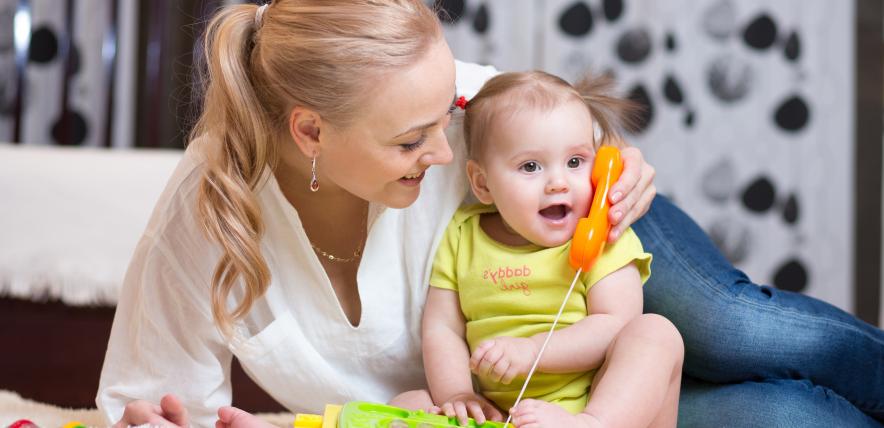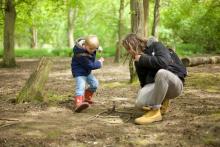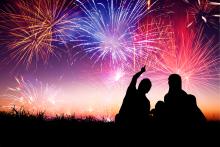One of the most useful skills for a child starting school is to be a good communicator.
A child who can communicate clearly will be able to express their feelings, thoughts and ideas. They'll find it easier to make friends and ask adults for help, and be more likely to resolve disagreements with words rather than aggression.
Chatter matters
Building children's communication skills starts from birth – or even in the womb, according to some experts. It's never too early to start sharing songs, rhymes and stories with your baby. Give a running commentary on everything you're doing, even if your baby's too young to understand, and ask them questions even if they're too young to answer. They'll soon start to recognise important words and your different tones of voice, and you'll be helping them develop the vital neural connections that will one day enable them to ask questions and sing songs themselves.
Find as many opportunities as possible for face-to-face chatter with your baby or child, for example during nappy changes, mealtimes, bath time and getting dressed. Turn off your phone, TV and stereo off at these times so your little one has your full attention. Although TV and radio programmes might be full of words, they're not good for teaching speech, as young children can't interact with them or get a three-dimensional, tactile example of how sounds and words are formed.
Don't discourage your child from sticking their tongue out or blowing raspberries (when appropriate!) as these sorts of gestures are ideal for developing mouth muscles and learning the control that will eventually enable them to speak clearly. From soon after birth your baby will try to copy your mouth movements – a surprised open mouth, yawn or smile. As they grow up, blowing bubbles, sucking straws and licking the spoon after baking are all fun ways to develop control of little lips and tongues.
Say and play
From baby's first favourite peek-a-boo, there are lots of games to help your child build the concentration, memory and language skills they need to become good communicators. Try playing I-Spy (use colours if your child doesn't yet know their letters), Simon Says or I Went to the Shops and I Bought…. with your toddler or pre-schooler. Older children might enjoy Twenty Questions or Who Am I? (Where they have to work out the name of a famous person stuck to their forehead), as well as commercial games such as Guess Who or Rory's Story Cubes.
Sensory play involves lots of rich, descriptive language. When you're cooking, painting or gardening together, talk about how things feel, look, taste or smell. Try making a 'feely bag' – a drawstring bag containing a variety of objects such as a pebble, hairbrush, small teddy, notebook and satsuma. Without looking, can your child describe what they are feeling and work out what it is?
Give your child lots of opportunities to role play too. A well-stocked dressing-up box will encourage them to try out different voices and types of language. 'Small world' play with little figures and vehicles is also great for developing speech, as are toy telephones and microphones.
When you're out and about, encourage your child to talk to 'safe' adults such as shop workers or health professionals. Then, when you get home, set up a pretend shop, cafe, vet's or doctor's surgery and re-enact your outing.
Tech talk
Let your little one record themselves speaking on a phone, tablet or dictaphone and listen back to the results. You could even set up an interview and film it. What do they want to be when they grow up? Who's their best friend? What's their favourite food, song, book and film?
If you're stuck in a waiting room together, have a look at the photos on your phone. What can your child tell you about the different people, places and events? At home, photo albums and scrapbooks are great conversation prompts. Make personalised ones for your child using pictures of their friends, family and favourite things.
Children love role-reversal games. When it's time to go out, can they tell you what to do to get ready? At bedtime, can they lead you through each step in the routine?
Once they're tucked in, share a story… or two, or three, and make time to chat. What can they remember about the day? What did they like best? What are they looking forward to tomorrow…?
Further information
Remember that all children develop at different rates but if you have any concerns about your child's language development, discuss them with your health visitor or doctor.
There's also great support available from the following organisations:
Written for the Early Years Alliance by Elyssa Campbell-Barr.







